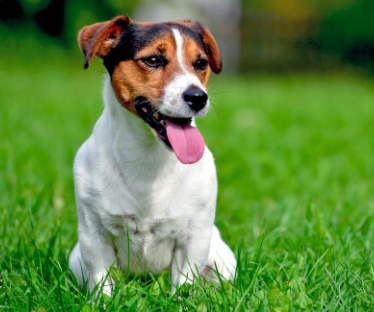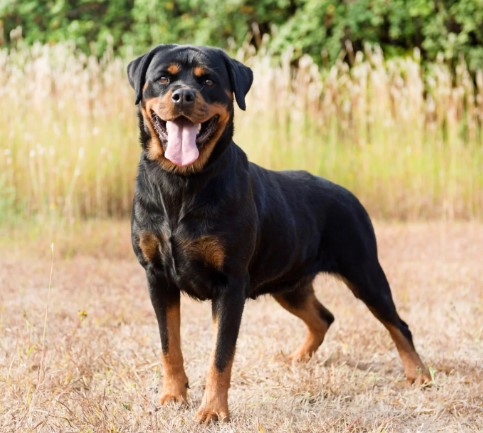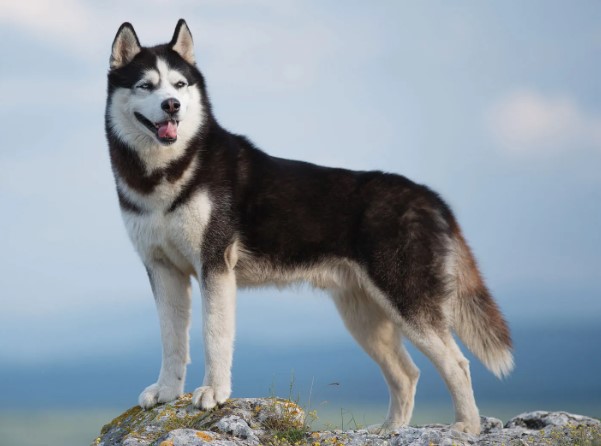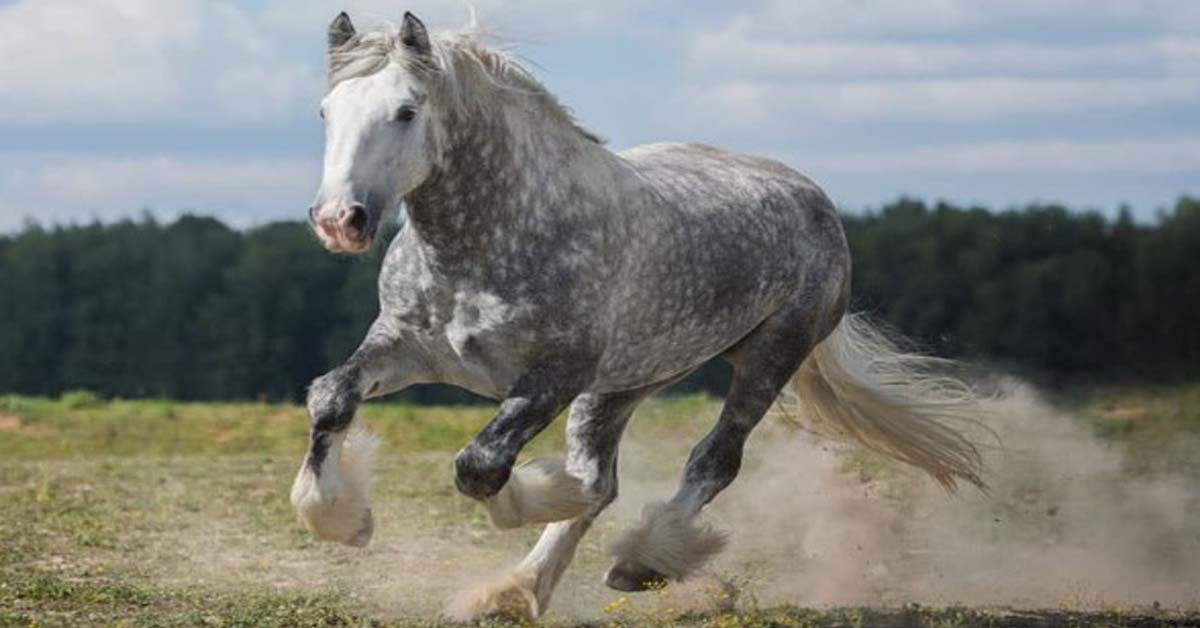The Russell Terrier, also known as the Jack Russell Terrier, is a compact terrier breed originating from fox hunting in England. Characterized by a predominantly white body and a smooth, rough, or broken coat, it can display a variety of colors.
Occasionally, small tan and white terriers, distinct breeds in their own right, are erroneously referred to as “Jack Russells.” Each breed adheres to specific physical standards established by their national breed clubs, with size and proportion being key distinguishing factors.
Some authorities acknowledge a related but distinct breed called the Russell Terrier, characterized by a shorter stature and stockier build, ranging from 20 to 30 cm (8 to 12 inches). However, the Federation Cynologique Internationale (FCI) designates the Russell Terrier as a subtype of the Jack Russell Terrier. Confusion also arises with Parson Russell terriers.
Technically, the Parson Russell tends to be larger, officially falling within the medium range with a standard size of 30 to 36 cm (12 to 14 inches), while the Jack Russell encompasses a broader size range, spanning from 25 to 38 cm (10 to 15 inches).
Jack Russells are known for their energetic nature, relying on a high level of exercise and mental stimulation. They generally enjoy good health with minimal serious health concerns. Originating from the dog bred by Rev. John Russell in the early 19th century, the Jack Russell shares its roots with the modern Fox Terrier, undergoing various changes to meet evolving usage and breed standards set by the Kennel Club. The breed faced opposition to Kennel Club recognition from its parent society, leading to the development and recognition of the Parson Russell terrier.
Jack Russells has made frequent appearances in film, television, and print, showcasing some historically significant dogs.
Jack Russell Terrier Size & Basics
- Life span: 13 – 16 years
- Temperament: Stubborn, Intelligent, Energetic, Clownish, Fearless, Athletic, Vocal
- Height: 25 – 38 cm (Adult, At the withers)
- Mass(Weight): 6 – 8 kg (Adult)
- Colors: White, White & Tan, Black & White
- FCI: standard
- Family: Terrier
- Area Of Origin: England
- Date Of Origin: 1800s
- Other Names: Parson Jack Russell Terrier
Russell Terrier Breed Characteristics
| Adaptability: 3 Points | Sensitivity Level: 3 Points | Kid-Friendly: 4 Points |
| Dog Friendly: 5 Points | Shedding: 3 Points | Easy To Groom: 3 Points |
| Health: 4 Points | Trainability: 4 Points | Intelligence: 5 Points |
| Energy Level: 5 Points | Physical Needs: 5 Points | Intensity: 5 Points |

History Of Russell Terrier
The Jack Russell Terrier stands as a dedicated working terrier, bearing the namesake of the Reverend John Russell. Renowned for breeding one of England’s finest fox-hunting terrier breeds, the Jack Russell embodies the essence of a baying terrier. This characteristic involves the dog skillfully using constant barking to chase away foxes without causing harm to their prey.
From its inception in the early 1800s, the Jack Russell has been meticulously bred for hunting, resulting in a breed with a consistent genetic makeup. However, debates over leg length have prompted a division within the breed in England. Dogs with long legs are termed Parson’s Jack Russell Terriers, while those with shorter legs are referred to simply as Jack Russell Terriers.
In the United States, despite the prevalence of short-legged dogs, the officially recognized Jack Russell Terrier encompasses those with longer legs. This breed has garnered favor among equestrian enthusiasts over the years.
The Jack Russell Terrier’s surge in popularity can be attributed to media exposure, particularly through iconic characters like “Moose,” who portrayed “Eddie” on the TV show “Frasier,” and “Soccer,” the star of the children’s program “Wishbone.”
While the Jack Russell Terrier has earned a place in the AKC terrier group, this recognition sparked dissent among enthusiasts who expressed concerns about its impact on the breed. Consequently, two national associations coexist for the breed – the original Jack Russell Terrier Club of America and the newly AKC-accredited Jack Russell Terrier Association of America.
Russell Terrier Temperament
The Jack Russell Terrier radiates with energy, cheerfulness, and a playful spirit. While they may exhibit a touch of stubbornness and independence, their loyalty to owners and family is steadfast. With notable intelligence, they enthusiastically participate in training sessions, deriving joy from mental stimulation.
These terriers thrive in play and can joyfully accompany you for extended periods, provided there’s something to capture their interest. Despite their protective instincts towards caretakers and family, they maintain a non-aggressive demeanor, avoiding incessant barking at every movement, a trait seen in some other terrier breeds.
In the company of other pets and children, Jack Russell Terriers form positive bonds, revealing their friendly disposition. As highly active dogs, they yearn for ample daily exercise to ensure their well-being and fulfillment.
Russell Terrier Personality
Brimming with energy and personality, the lively Jack Russell encapsulates a world of charm in a compact frame. Affectionate, devoted, and ceaselessly entertaining, this spirited canine revels in the joys of life. Given the opportunity, Jack may enthusiastically pursue pleasures, leaping over fences and darting through streets. Although exceptionally intelligent, his strong-willed disposition can pose challenges during training.
While inherently friendly towards people, Jack can exhibit aggression towards animals resembling prey, including other dogs and cats. His fearless nature, especially when hunting larger dogs, exposes him to potential dangers. Jack flourishes in a structured routine, yet training sessions should be brief and engaging to retain his interest, as repetition tends to bore him. A well-raised Jack is characterized by friendliness and affection, devoid of shyness.
Like all dogs, Jack Russells benefit from early socialization, exposing them to diverse people, sights, sounds, and experiences during their formative stages. This process ensures the development of a well-rounded and socially adept Jack Russell.
Among the most likable Jack Terriers are the Large Jack Russell Terrier, Black Jack Russell Terrier, and Jack Russell Terrier mix.
Health About Russell Terrier
The majority of Russell Terriers are joyful and robust little canines. Ethical breeders prioritize the well-being of their dogs by conducting assessments for patellar luxation, checking for health issues like deafness and eye diseases. They are committed to upholding the genetic health of the breed, ensuring the overall welfare of their breeding stock through comprehensive health testing.
Recommended health tests from the National Breed Club:
- Patella Evaluation
- BAER test
- Primary Lens Luxation (PLL)
- Ophthalmologist Evaluation

Russell Terrier Care
The Jack Russell thrives as a people-centric companion, ideally residing indoors with its family. Access to a secure, fenced yard is essential to accommodate its abundant energy, and the fence should be impervious to climbing, digging, or jumping—akin to Fort Knox. Underground electronic fences are not recommended, as the potential shock pales in comparison to the instinct to pursue perceived prey.
Leashing your Jack Russell is crucial to prevent chasing other animals, confronting larger dogs, or darting in front of vehicles. Providing 30 to 45 minutes of daily vigorous exercise, along with off-leash play in a secure yard, helps channel their energy positively and keeps them content.
Dealing with a Jack Russell requires a firm and consistent approach. While they respond well to positive stimuli like praise, play, and food rewards, harsh correction can lead to stubbornness. Establishing rules, and routines, and exercising patience, along with the right motivation, yields rewarding results. Jack Russells has an impressive capacity for learning when paired with the right person.
Early socialization, beginning in puppyhood, is crucial for positive interactions with other dogs and helps prevent aggression in the future.
Russell Terrier Grooming
The Russell Terrier’s rugged and robust look is effortlessly preserved. Their coats come in three varieties: smooth, broken, and rough. For the dense, short, smooth coat, a weekly grooming session suffices, involving a gentle all-over rubdown with a soft brush or hound glove.
In the case of rough and broken coats, a weekly brushing or combing is recommended, although many owners prefer a natural look with minimal grooming. Regular nail trimming should be performed monthly, and a weekly check of the ears is advised to remove any debris or excess wax as needed.
Russell Terrier Feeding
A Russell Terrier should thrive on high-quality dog food, whether it’s commercially produced or prepared at home under the supervision and approval of your veterinarian. The chosen diet should align with the dog’s specific life stage, be it puppy, adult, or senior.
Monitoring calorie intake and weight is crucial, as some dogs are prone to gaining weight. While treats can be valuable for training, excessive indulgence can contribute to obesity.
It’s essential to be aware of which human foods are safe for dogs and which are not. If there are any concerns about your dog’s weight or diet, consulting your veterinarian is advisable. Additionally, ensure that clean, fresh water is always accessible to your Russell Terrier.
Exercise & Training
The Russell Terrier isn’t suited for a sedentary lifestyle. Its high energy levels and assertive personality make it an ideal choice for active families who enjoy frequent hikes, bike rides, and extended daily walks.
Engaging the Russell Terrier in games that stimulate both its mind and body is essential. A well-exercised Russell Terrier is a content and well-behaved companion. Their seemingly boundless energy makes them excellent partners for perceptive children.
Given their strong hunting instinct, early and thorough socialization is crucial to prevent any potential issues stemming from this trait.
When training a Russell Terrier, a good sense of humor is an invaluable tool. Their high intelligence and enthusiasm for problem-solving and games necessitate fun and engaging training sessions, as they easily become bored. Quick learners, excel at tricks and take pleasure in entertaining by performing. Their dedication to tasks mirrors their historical breeding for hunting purposes.
Beyond being great family pets, Russell Terriers shine in various canine sports such as agility, flyball, obedience, rally, and obstacle courses.
Needs For Living
Jack Russell Terriers are highly energetic, requiring ample space to roam freely. If your yard is limited in size, and local regulations permit, consider acquiring a dog house or constructing one to enhance their living environment.
Ensuring a constant supply of fresh water is essential for your Jack Russell Terrier’s well-being. Being social beings, they thrive on the attention of everyone in your household.
The optimal living arrangement for Jack Russell Terriers involves an environment with abundant fresh air and opportunities for exercise. Their fondness for walks and games like fetch necessitates a schedule that accommodates these activities.
For individuals with long work hours, arranging for someone else to care for your dog at home is advisable to meet their needs adequately.
Rescue Groups For Adopt Or Buy Russell Terrier
- Parson Russell Terrier Association of America Rescue
- Russell Rescue, Inc.
- Russell Refuge
- JRTCC National Russell Rescue
More Dog Breeds and Further Research
Russell Terrier Puppy Training
Russell Terrier Dog Breed FAQs
How expensive is a Jack Russell? jack russell terrier for sale
Jack Russells can vary significantly in price depending on how you want to adopt a Jack Russell. Adopting a Jack Russell from a reputable rescue will cost you around $300.00 and adopting a purebred Jack Russell from a reputable breeder can cost you anywhere from $800.00-$2500.00.
Jack Russell Terrier Prize In India : Rs 25,000 – Rs 30,000
Is Jack Russell a good pet?
This active dog is a perfect family dog, especially if you have children over the age of three or four. They have an adventurous nature so it’s best if you also have an adventurous side. Jack Russells tend to get bored, so it’s best if they have a family that can really give them the time of day.
What problems does Jack Russell have?
Common health problems affecting the Jack Russell breed include hereditary eye diseases and deafness. Leg Perthes is a disease of the hip joint that commonly occurs in small breed dogs, including the Jack Russell. They are also prone to dislocation of the kneecaps.
Why is Jack Russell so special?
Raised to be fearless and indifferent. Jack Russell Terriers are tough, tenacious, athletic, and super friendly. This energetic dog was bred as a working dog and still exhibits the intelligence that made it so popular as a hunting dog in the early 19th century.












3 thoughts on “Jack Russell Terrier: Know About This Dog Breed Special Information”